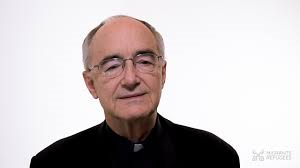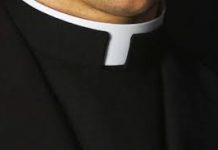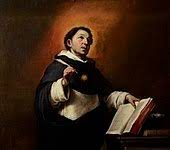In a surprise move, Pope Francis has appointed a Canadian Jesuit priest, Father Michael Czerny, as one of the newest members of the august body of Cardinals in the Church. There have been ‘cardinals’ – literally, those men upon whom the Church ‘hinged’ – since the seventh century or so, but it was in 1059 that they were formalized by Pope Nicholas II, being granted the right of electing the man who would be the Vicar of Christ, and of helping him govern the universal Church through the Curia.
I know nothing of Father Czerny, except what I have read in the news, to which I will return in a moment. He is a member of the same religious Order as the Pope, founded in 1540 by Saint Ignatius of Loyola, and is reported to have been one of the primary authors of Laudato Si, now tasked with writing up whatever transpires in the Amazon synod. Hmm.
The Jesuits were once known for their fidelity to orthodoxy and the truth, but members of Loyola’s society in the modern era, shall we say, differ widely on that spectrum.
Hence, it was troubling to read the following CBC report:
Jesuit Peter Bisson describes Czerny as a theologically grounded progressive who is open to discussion about controversial issues such as ordaining women and LGBT inclusion in the church, but who will not stray from the church’s official stance on issues.
When asked whether he supports female ordination, Czerny at first bristled at the question. Later, he said he would not be comfortable articulating the goal now, but is open to “getting the listening started. [The question] shouldn’t be off the table.”
That openness to at least listening in a church that for years shut down frank discussion and dissent in its synods (or bishop gatherings) is a key component in the profound shift occurring in the Catholic Church under Francis, observers say.
The shift away from enforcing doctrine is the reason for ongoing attacks from traditionalist factions within the church, who are gathering in Rome this weekend for protests against the latest synod on the Amazon rainforest. Czerny will write the final paper, which may discuss the possibility of ordaining married men.
There are a number of unsettling bits, such as ‘progressive, and the ‘shift away from enforcing doctrine’, even a ‘profound’ one. But, for now, we will focus on the claim that the ‘question’ of ordaining women ‘shouldn’t be off the table’.
In light of that dictum of Saint Vincent de Paul we quoted recently, always to interpret things in the most charitable way possible in the circumstances, we may presume that Father Czerny is referring to ‘ordaining’ (I am hesitant even to use that term) the fairer sex to the diaconate, fraught as that is with its own problems, historical, liturgical, ontological and even practical: After all, I have my doubts that any woman who would follow such a course would be content with a ministry of diakonia, or service. We may return to that theme in later posts, as the synod(s) unfold.
For it would be most unfortunate for anyone – priest, bishop or layman – to entertain the possibility, and foster such in others, of women to the priesthood.
After all, the gentle reader may recall Pope Saint John Paul II’s 1994 Apostolic Letter Ordinatio Sacerdotalis, wherein he declared, with his full apostolic authority, that the Church had no authority nor power to change the original choice of Christ Himself, that ordination to the priesthood was reserved to men (vir). Allow me to quote the Pontiff’s conclusion in his own words:
Wherefore, in order that all doubt may be removed regarding a matter of great importance, a matter which pertains to the Church’s divine constitution itself, in virtue of my ministry of confirming the brethren (cf. Lk 22:32) I declare that the Church has no authority whatsoever to confer priestly ordination on women and that this judgment is to be definitively held by all the Church’s faithful.
And, in case there was still any lingering hesitancy about the matter in the hard of hearing or heart, Cardinal Ratzinger, then Prefect of the Congregation for the Doctrine of the Faith, made things even more explicit: I will offer the reader his entire response to the dubium (yes, they do respond at times, or used to)
Dubium: Whether the teaching that the Church has no authority whatsoever to confer priestly ordination on women, which is presented in the Apostolic Letter Ordinatio Sacerdotalis to be held definitively, is to be understood as belonging to the deposit of faith.
Responsum: Affirmative.
This teaching requires definitive assent, since, founded on the written Word of God, and from the beginning constantly preserved and applied in the Tradition of the Church, it has been set forth infallibly by the ordinary and universal Magisterium (cf. Second Vatican Council, Dogmatic Constitution on the Church Lumen Gentium 25, 2). Thus, in the present circumstances, the Roman Pontiff, exercising his proper office of confirming the brethren (cf. Lk 22:32), has handed on this same teaching by a formal declaration, explicitly stating what is to be held always, everywhere, and by all, as belonging to the deposit of the faith.
So far, so good. Yet what of those who continue to resist this clear and definitive teaching? We may turn to canon 751 of the Code of Canon Law, reiterated in the Catechism, paragraph 2089:
Heresy is the obstinate post-baptismal denial of some truth which must be believed with divine and catholic faith, or it is likewise an obstinate doubt concerning the same.
There is much more that could be said on the nature of the priesthood, which is not a ‘job’ to which all candidates may apply, but rather a sacramental ontological configuration to Christ in His humanity, which includes His maleness, the Bridegroom, laying down His life in sacrifice for His Bride, the Church.
A caveat that we are not sure from the aforementioned brief blurb from our Christian-baiting broadcaster what Father Czerny means, deep down in his heart of hearts, by keeping this question of female ordination ‘on the table’. I would not mind sitting around a similar table to discuss it with him. I would hope that, in accord with Lumen Gentium, the Church’s Dogmatic Constitution, he would offer the obsequim fidei, the assent of faith, to all that which is of the faith, and that any discussion on this issue and any other definitive teaching has as its intended purpose to lead others, the straying sheep, to do likewise.
We should all wish Father Czerny well, and pray for him, in his new appointment – red hat and robe – and all, and I hope the crimson symbol of shedding one’s blood for the Faith moves him ever more closely to the truth, and the Truth. There are larger matters at hand than consistories and cardinals – the whole eschatological question of Christ’s return and our own recompense. We may trust is that, after whatever turmoil there be, that same truth, now being revealed and manifested, will win out in the end.












